Image © Julian Love
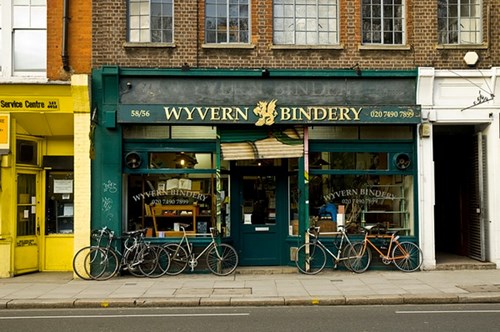
The Wyvern Bindery. Image © Nicola Boccaccini
In 1990 Hannah More and Rosie Gray and I had the chance to set up a bindery.
Hannah and Rosie understood how to run a business. Telephones, orders, invoices, accounting; all this was a mystery to me. Besides being extremely skilled binders, they were cheerful and great fun to work with. Laughter is the vital lubricant especially when things go wrong; as they always do when you make things.
We decided we needed to employ another binder. We were looking for someone with a love for the craft of binding, a thirst to learn and most importantly a sense of humour. We were always positive in giving newcomers a chance to learn new skills. And not just binding skills. Dealing with clients is beyond vital. Binders should want to learn how to talk to customers, to discuss how the book is to be bound, how much it will cost and when it will be done. Often the clients become friends and love sharing in the delights of a beautifully bound book.
Sharing knowledge and skills is really important. Our binders learnt by ‘osmosis’, working closely as a team. Some of them, we knew, would want to start their own binderies. Just as my master John Rose back in 1990 had helped me with binding equipment, I wanted to give a helping hand. England’s greatest binder in the late 1900s, Bro. Bernard Middleton wrote several books on repairing manuscripts and printed books which became our bibles on the art of sympathetic restoration; all his secrets were offered freely (or for the price of his book). To watch the developing skills and confidence of our binders gives great joy. In 30 years, over 20 binders have worked on our benches and have since taken their talents all over the world. This has been our greatest contribution to the craft.
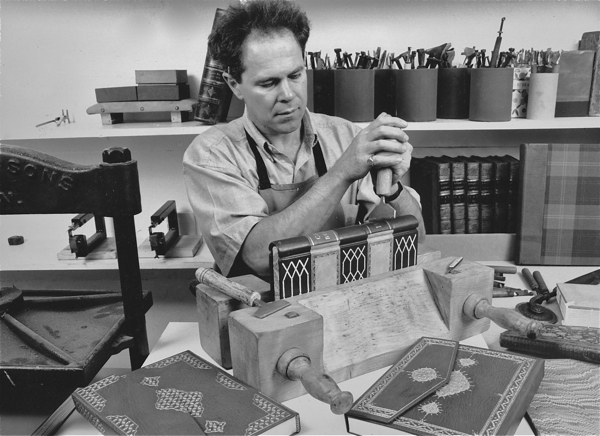
Mark at the Bindery in 1990 - 'Very young and very fake'
Finding cheap and central premises in London was easier in 90s. Clerkenwell Workshops offered monthly contracts. It was a comfort to avoid joint and severally liable long leases in the early days. After 4 years, when the business was on an even keel, we found a great spot on Clerkenwell road for £5,000 a year (although 20 years later it was a lot more, not to mention the rates). The bindery has now moved to Hoxton Street.
A bindery needs lots of ‘kit’. I am a collector of marble paper, hand tools, brass letter fonts and various lettering presses; all put to good use. Whenever there was some spare cash, we invested in more fonts, a better blocking press and a top of the range board chopper. All very good investments.
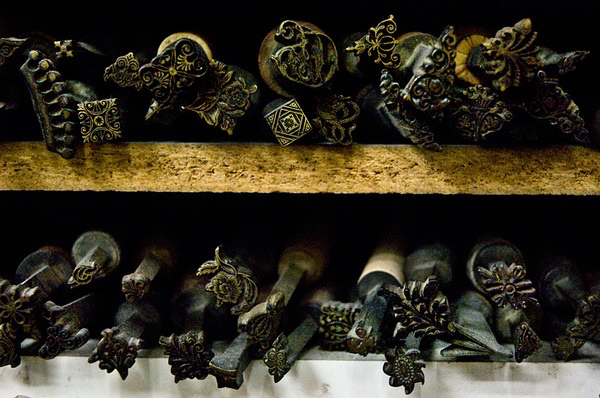
Decorative brass hand tools for embellishing spines and covers.
Image © Nicola Boccaccini
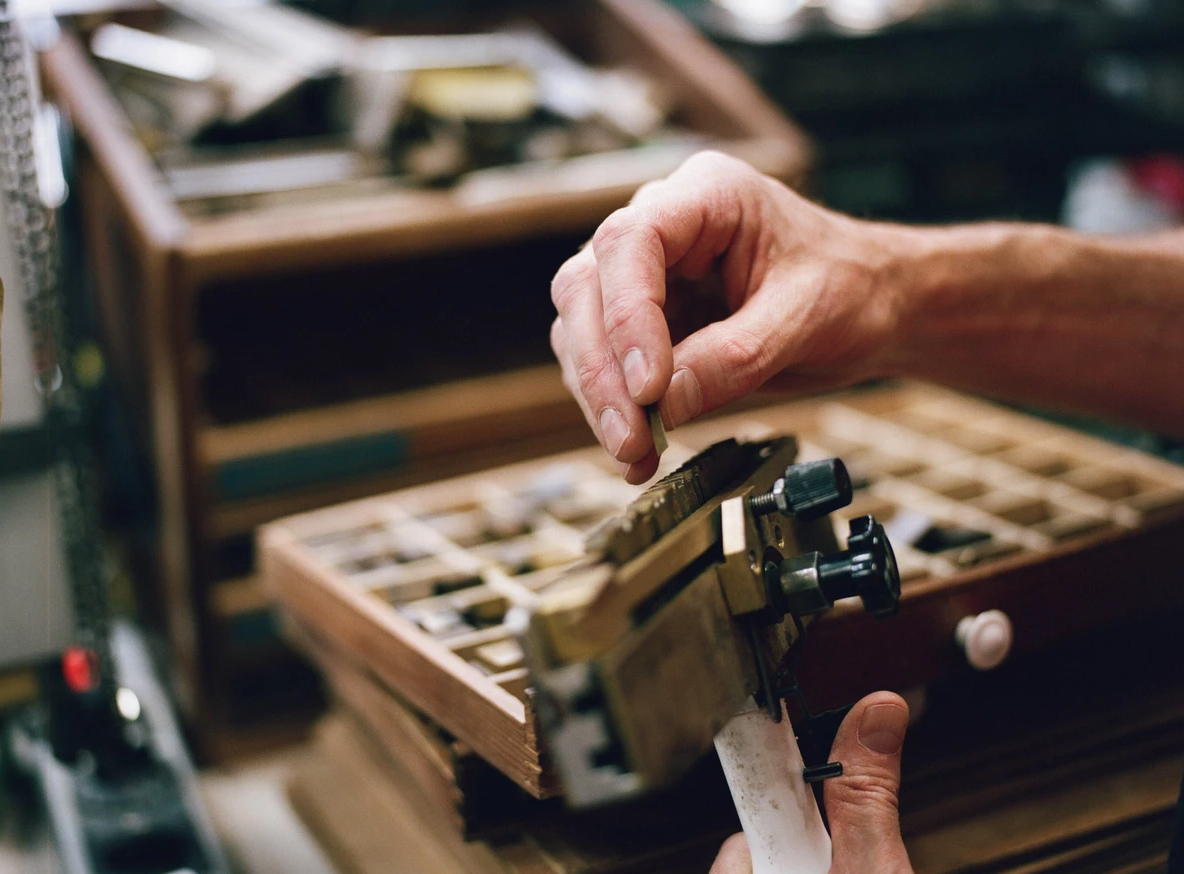
Composing a line of moveable type prior to titling a book's spine.
Image © Julian Love
Finding new clients in the early days was hard. After the low hanging fruit of family, friends and fools had been exhausted, we were struck by 3 shafts of luck. A law firm needed hundreds of magazines bound (a service that is now extinct), several editions of Palawan Press books were all to be bound in full leather and then the hundreds of props for Harry Potter. The essential part of all types of binding is keeping the promise of high quality and delivery on time. Over 30 years many of our best earners have disappeared. Portfolios for photographers, elaborate financial ‘bibles’, magazine bindings and photo albums; all gone the way of the ‘cloud’. But still there are lots of bibliophiles who cannot resist the beauty of a leather binding, elegantly tooled in gold as well as many other sources of work.
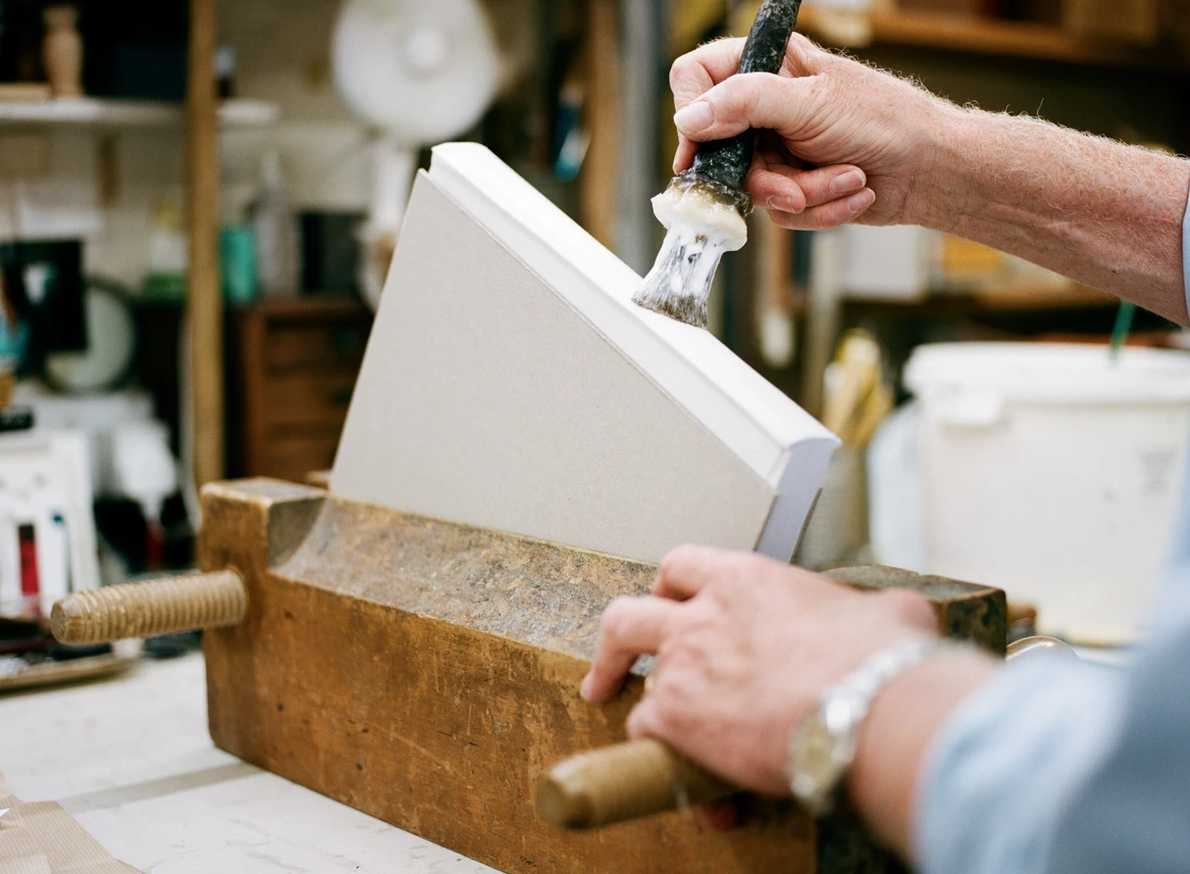
Gluing up the spine for a lining of brown paper. Image © Julian Love
Keeping the books up to date is crucial as is a friendly relationship with the accountants. They deal with PAYE, tax and pensions (both increasingly complicated) and keep HMRC off our backs. Without a ‘grasping’ attitude to unpaid invoices, cash flow will cease and paying the employees and creditors will be tricky. The most delicate part of the business is the wages. We aim to be fair and generous, not an easy task. But we always try to offer a bonus in November, in time for Christmas.
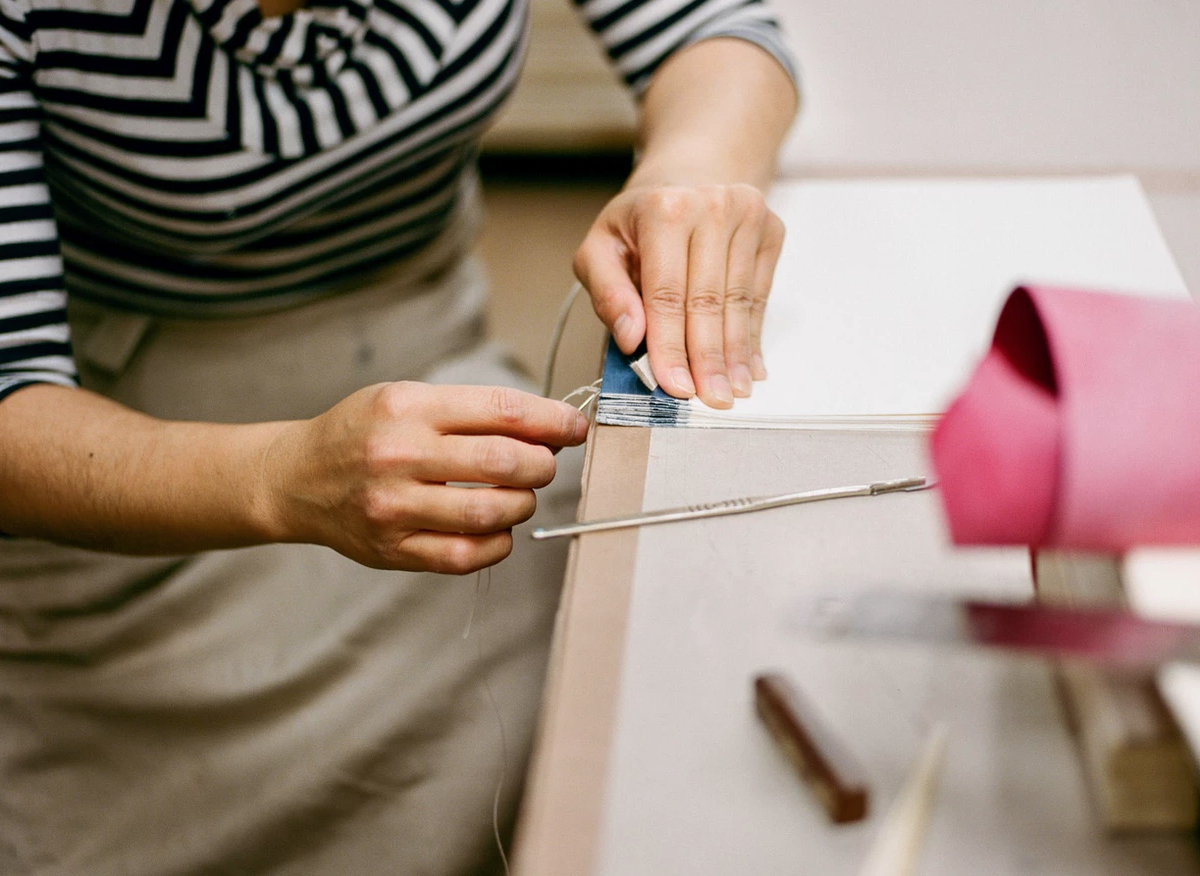
Sewing the 'kettle stitch', the last stitch on a hand sewn book.
Image © Julian Love
Love your craft, smile and be thankful that handmade books are very addictive.
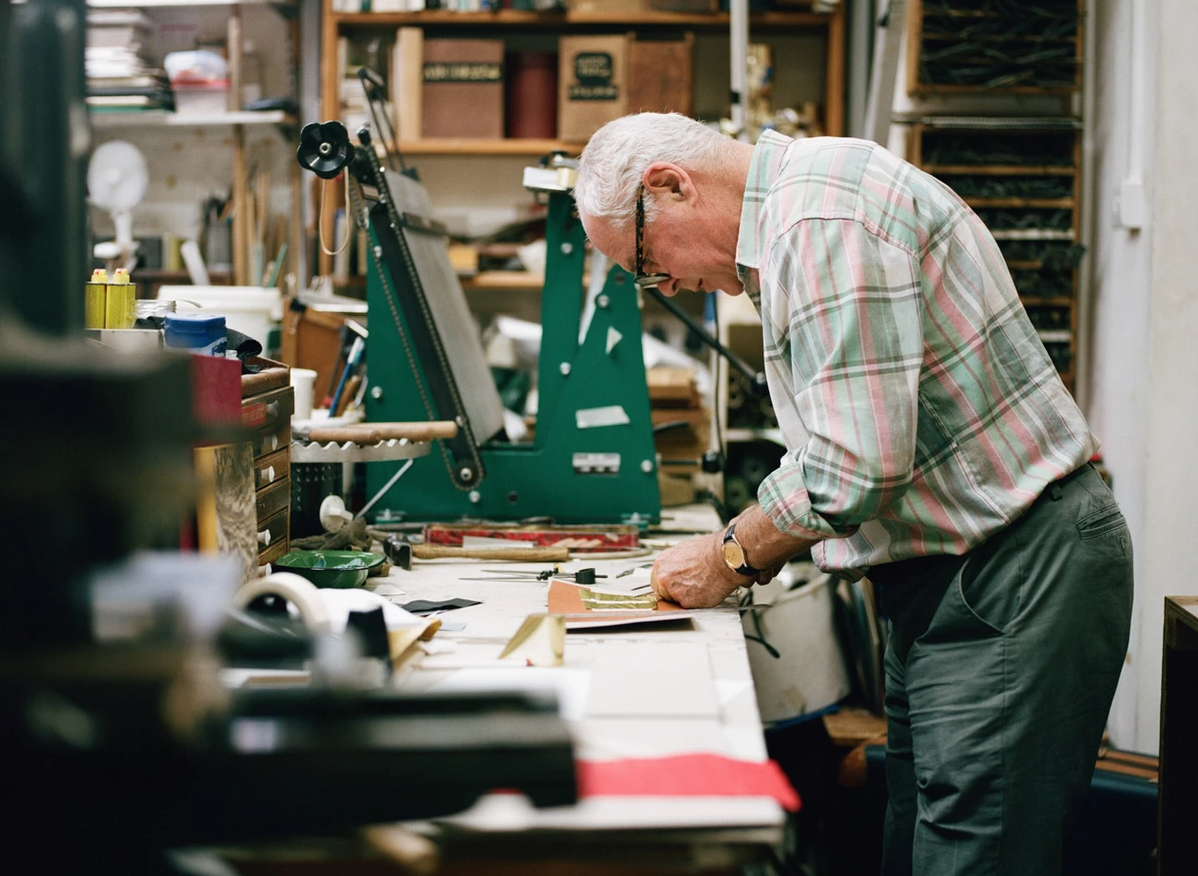
'Any typos?' Image © Julian Love